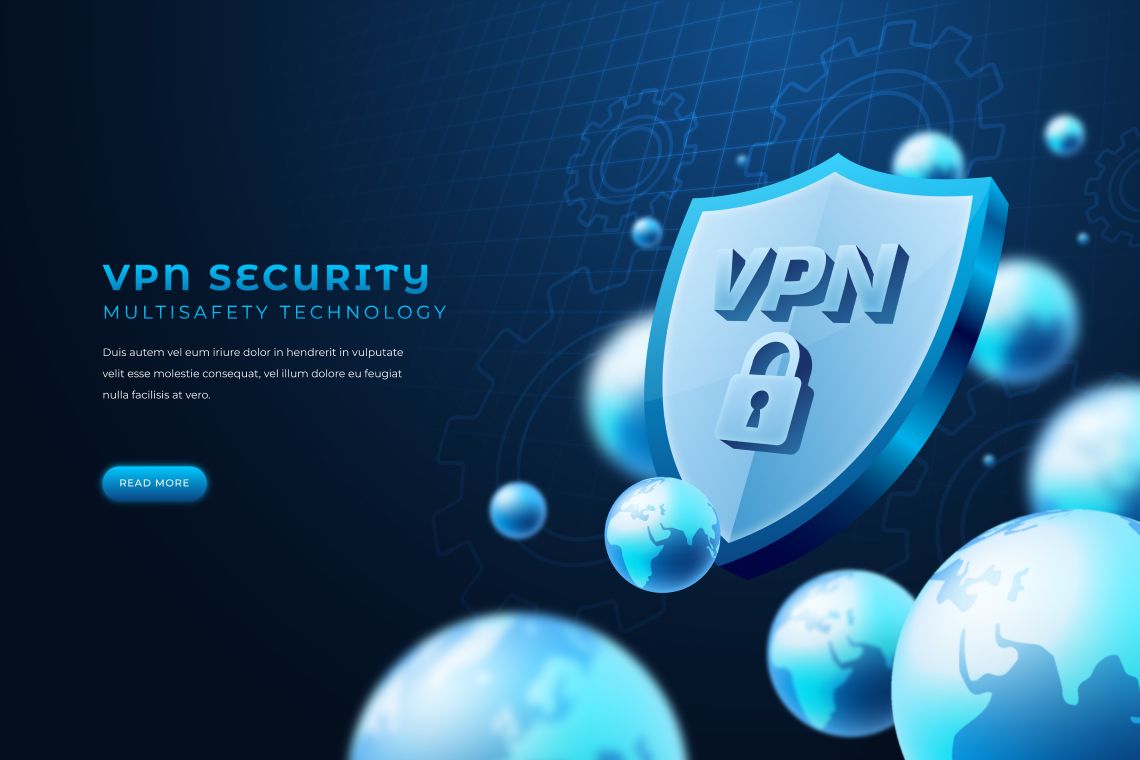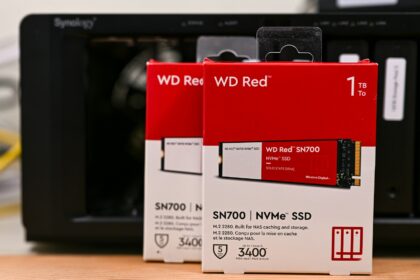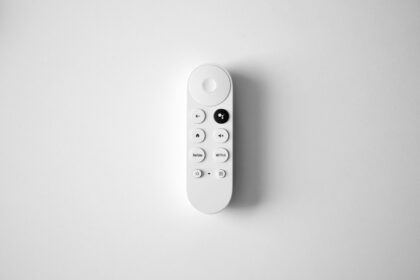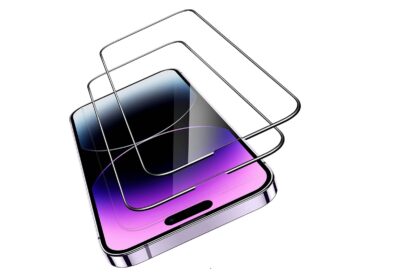Ever wondered what all the fuss about VPNs is? You’ve probably seen countless ads on YouTube or heard friends talking about using one to watch Netflix shows from other countries. Maybe you’re thinking it’s some complicated tech thing only computer experts understand. Well, let me break it down for you in simple terms.
A Virtual Private Network (VPN) is basically a secure tunnel between your device and the internet. Think of it like this: instead of walking naked through a crowded street (your normal internet connection), you’re driving through a private, encrypted tunnel where nobody can see what you’re doing.
What does VPN actually mean?
Let’s start with the basics. VPN stands for Virtual Private Network. Each word tells us something important about what it does.
Virtual means it’s not a physical cable or wire – everything happens through software and digital connections. Private means your data is hidden from prying eyes. Network means it connects multiple devices and servers together.
When I first heard about VPNs five years ago, I thought they were only for hackers or people doing shady stuff online. Boy, was I wrong! Today, nearly 1.5 billion people worldwide use VPNs – that’s about one in three internet users.
How does a VPN work exactly?
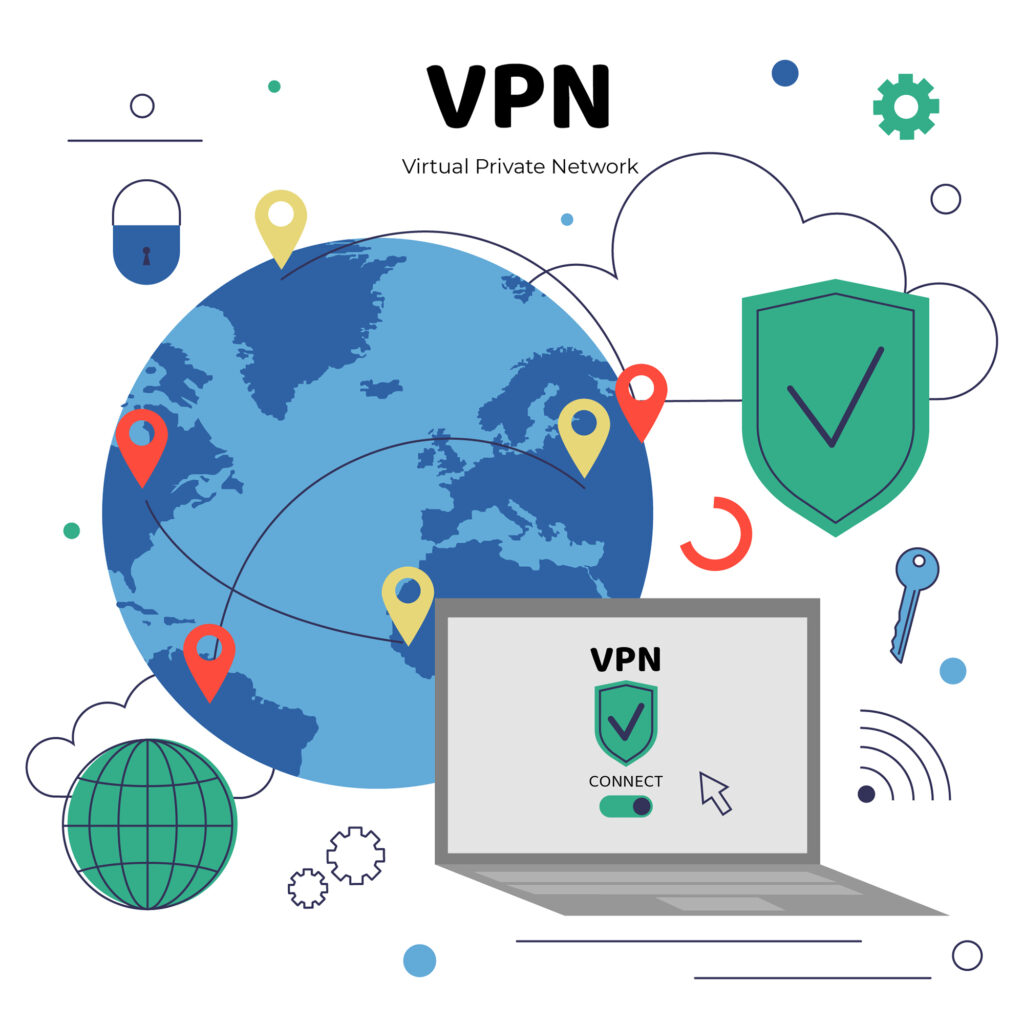
Imagine you’re sending a secret letter to your friend. Without a VPN, it’s like writing on a postcard – anyone handling your mail can read it. With a VPN, you’re putting that letter in a locked box that only your friend has the key to.
Here’s what happens when you connect to a VPN:
Your device connects to a VPN server – this could be anywhere in the world. All your internet traffic gets encrypted (scrambled) before leaving your device. The VPN server receives your encrypted data and forwards it to websites on your behalf. When websites respond, the data comes back through the same secure tunnel.
The cool part? Websites think all your traffic is coming from the VPN server, not your actual location. If you’re sitting in New York but connected to a VPN server in London, websites will think you’re browsing from London.
Why are so many people using VPNs?
The numbers are pretty eye-opening. In the United States alone, 46% of adults use VPNs. That’s nearly half the adult population! But why?
Privacy protection tops the list. About 47% of users say they want to protect their personal data from being tracked. Think about it – your internet provider, advertisers, and even government agencies can see what websites you visit without a VPN.
Streaming is another huge reason. 46% of VPN users want to access content that’s blocked in their region. Ever tried watching a show on Netflix only to find out it’s not available in your country? That’s where VPNs come in handy.
Public Wi-Fi security is also a big concern. 42% of users turn on their VPN when connecting to public Wi-Fi at coffee shops, airports, or hotels. These networks are notoriously unsafe – it’s like leaving your front door wide open.
The VPN market is absolutely exploding
Here’s something that might surprise you: the global VPN market was worth over $44 billion in 2022. Experts predict it’ll reach $71 billion by 2027. That’s a growth rate of 16.5% every year!
China is expected to have the highest growth at 17.4% through 2026. The US still holds more than a third of the global market share, but countries like Canada (12.8% growth) and Japan (12% growth) are catching up fast.
What’s driving this growth? More cyberattacks, data breaches, and government surveillance are making people increasingly paranoid about their online privacy. And honestly, they have good reason to be.
VPN encryption: The technical stuff made simple

Don’t worry – I won’t bore you with complex technical jargon. But understanding encryption helps you make better choices.
Most good VPNs use something called AES encryption. AES stands for Advanced Encryption Standard, and it’s the same technology banks and governments use to protect sensitive data.
There are different levels:
- AES-128: Uses a 128-bit key and goes through 10 rounds of encryption
- AES-256: Uses a 256-bit key and goes through 14 rounds of encryption
AES-256 is considered virtually unbreakable. To put this in perspective, it would take millions of years for even the most powerful computers to crack this encryption through brute force.
Who’s actually using VPNs?
The demographics might surprise you. VPN usage skews toward younger and male users. About 62% of VPN users are male, and 39% of global VPN users are aged 16-24.
But it’s not just young tech-savvy people anymore. VPNs are becoming mainstream. 95% of American adults are now familiar with VPN technology, up from just 72% in 2020.
The most popular devices? 72% of VPN users use them on desktop or laptop computers, while 69% use them on mobile devices. Many people use VPNs on both platforms.
Regional differences in VPN adoption
VPN usage varies dramatically around the world. Indonesia leads with 55% of residents using VPNs, followed by India at 43%. The United Arab Emirates sits at 42.3%, while Russia comes in at 41.8%.
These high usage rates often correlate with internet censorship or content restrictions. In countries where certain websites or services are blocked, VPNs become essential tools for accessing information.
Interestingly, about 36% of VPN users worldwide use their service every day, and another 41% use it at least once a week. This shows VPNs aren’t just occasional tools – they’re becoming part of people’s daily internet routine.
The truth about “no logs” policies
Here’s where things get a bit murky. Many VPN providers claim they have a “strict no-logs policy,” meaning they don’t store any information about your browsing activity.
But here’s the reality check: there’s no such thing as a truly “no logs” VPN. VPN providers need to store some information to make their service work. They need to track how many devices you have connected, associate your sessions with your account, and handle payments.
Some VPN companies have been caught lying about their logging practices. PureVPN claimed “no logs” but provided user data to the FBI. HideMyAss stored logs and handed them over to UK authorities.
The key is understanding what kind of logs are kept and for how long. Reputable VPN providers are transparent about what minimal data they collect and why.
Free VPNs: Are they worth it?
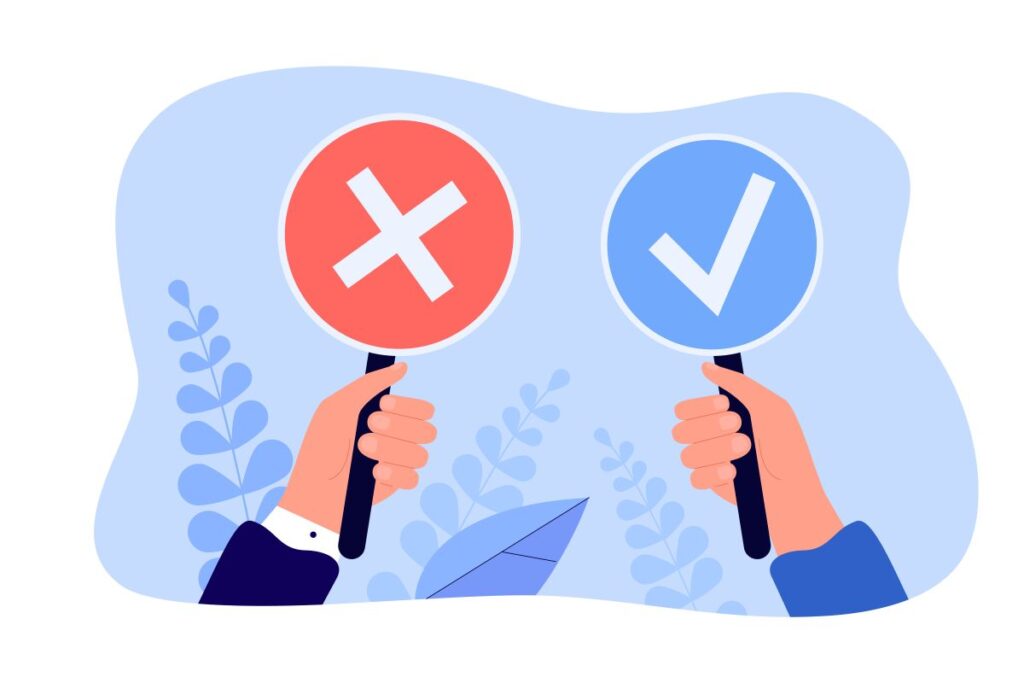
Short answer: usually not. About 43% of VPN users rely on free services, but this can actually jeopardize your data security.
85% of free VPNs share user data with advertisers. Think about it – if you’re not paying for the product, you ARE the product. Free VPN companies make money by selling your data or showing you ads.
93% of free VPNs also reduce your connection speed significantly. And here’s the kicker: 99.98% of free VPN users are uniquely traceable despite thinking they’re anonymous.
My advice? If you’re serious about privacy and security, invest in a reputable paid VPN service. It’s usually just a few dollars per month for much better protection.
Types of VPNs explained
Not all VPNs are created equal. There are several types designed for different purposes:
Personal VPNs are what most people think of – consumer services that protect your privacy and help bypass geo-restrictions.
Remote access VPNs are used by companies to let employees securely connect to the office network from home. 93% of organizations currently use some form of VPN.
Site-to-site VPNs connect entire networks together, like linking a company’s main office to branch offices.
VPN limitations you should know about
Let’s be honest – VPNs aren’t magic bullets that make you completely anonymous online. Using a VPN doesn’t make you anonymous if you’re logging into personal accounts like Gmail or Facebook.
There was a case where someone used a VPN for cyberstalking but still got caught because they logged into their personal Google account while connected. The VPN IP address was then linked directly to their identity.
VPNs also don’t stop websites from placing cookies on your browser. These small files can still track your behavior across sites. You need to disable cookies in your browser settings for additional privacy.
Popular VPN providers and market leaders
Based on current market data, the most popular VPNs are NordVPN, Proton VPN, and Google One VPN. Google One VPN has surged in popularity since Google started offering it free with cloud storage subscriptions and Pixel phones.
About half of all VPN users rely on their service for work applications, while an equal number use them for personal browsing.
The future of VPN technology
As many as 10 million additional Americans could start using VPNs in 2024 alone. This underscores the growing recognition of online privacy’s importance.
The VPN market is projected to continue growing, though the pace might slow slightly after 2024. Europe is expected to reach a $12.9 billion market size by 2026, with Germany growing over 12% annually.
Should you get a VPN?
Here’s my take: if you care about your online privacy, use public Wi-Fi regularly, or want to access geo-blocked content, a VPN is definitely worth considering.
Just remember that VPNs are tools, not magic solutions. They’re excellent for protecting your data from your internet provider, securing your connection on public Wi-Fi, and bypassing geographic restrictions. But they won’t make you completely anonymous if you’re not careful about your online behavior.
Choose a reputable provider, avoid free services, and understand what you’re getting into. VPNs can significantly improve your online privacy and security when used properly.
The bottom line? In today’s digital world, using a VPN is becoming less of a luxury and more of a necessity for anyone who values their privacy and security online.


